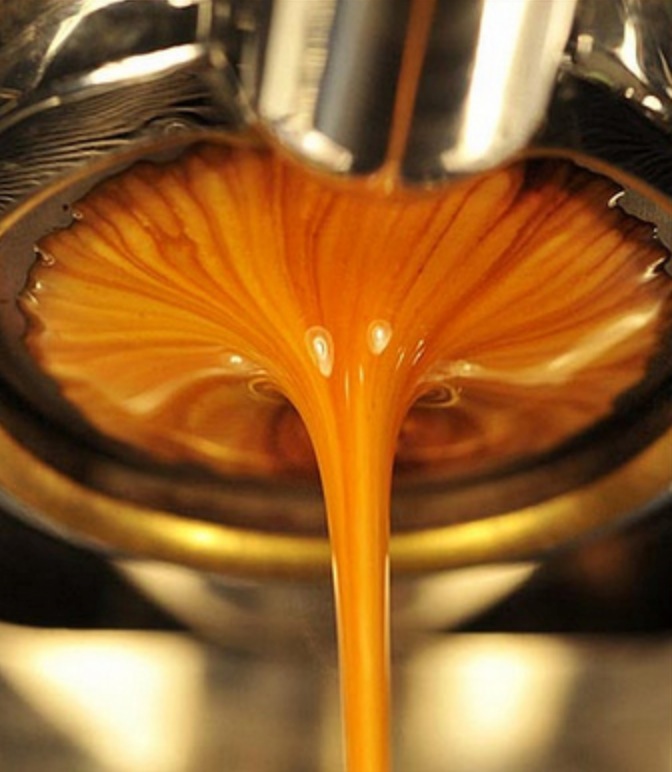Why do coffee shops train baristas when coffee industry develops?
It is difficult to talk about how to train baristas in two hours, and there is no time to explain the importance of training baristas.
Recently in Vienna, the European Fine Coffee Association (SCAE) convened a conference attended by professionally certified baristas, and I was invited to give a speech on "barista training strategies". I have been a trainer for more than 30 years, and I have selected some aspects from my work experience that I think are most important and useful to the trainer. It is difficult to talk about how to train baristas in two hours, and there is no time to explain the importance of training baristas.
So when someone asked me after the speech why barista training was important, I was not surprised at all (this is what barista trainers need to explain to coffee shop owners). I blurted out the key words "ability", "self-confidence" and "consistent", but this made my answer very formulaic. I said at the time that it required me to explain their meaning in more detail. I will give my answer in more detail next time.
In order to make the reasons for the training easier to remember, I summarized them into four C.
Common goal (Common Goals)
First of all, no matter what a coffee shop calls it: corporate standards, systems, or procedures, all employees and baristas in the cafe should be able to understand and work towards a training goal. Alternatively, baristas can have longer-term and broader goals, such as meeting the industry standards set by the American Fine Coffee Association or the European Fine Coffee Association. Other countries, such as Australia and New Zealand, have national training standards and specialized training institutions or organizations provide courses for baristas and then issue certificates to qualified baristas. There are also some global benchmarks as targets for baristas, such as the World Barista Competition. No matter what these goals are, these rules should be clearly summarized, and all coffee practitioners should strive to understand them and make them the focus of their training. A complete manual for coffee shop employees is very necessary for every coffee shop.
Confident and capable employee (Confident and Competent Staff)
If all employees have learned and mastered the rules, regulations and requirements of their coffee shop through training, then everyone will know what, when and how to do it, and there is no doubt that this will reduce the chances of mistakes. Trained employees not only have enough ability to work, but also have full confidence and relaxation at work. In this way, employees will have a greater sense of satisfaction. Confident and capable employees are relaxed and happy at work and better customer service, which should be the goal of all coffee shop owners and can only be achieved through systematic staff training.
Consistent quality of service (Consistency of Service)
Another purpose of training baristas is to keep the baristas' service consistent. A lot of the work in coffee shops is repetitive, and the consistent quality of service is the top priority of this kind of work. If a customer visits your coffee shop again, it means that what he wants is the same as before. there is no doubt that it is important to meet the customer's need and there can be no surprises. Customers may return to the coffee shop to drink the coffee they have drunk before, or to experience the service they have experienced before. if they change the quantity or taste of the drinks they have drunk before, or even the style of music, it is possible to reduce customer satisfaction. The only way to ensure the quality of service remains the same is to provide all-round training for baristas. In addition, it is also helpful to develop a handbook for coffee shop practitioners.
Customer satisfaction (Customer Satisfaction)
Confident and capable baristas and constant service quality can satisfy the customers of a coffee shop, and they will become loyal customers of the coffee shop. There is a saying in business: "80% of new customers are brought by 20% of old customers." Therefore, when dealing with old customers, we should make a good impression on them. Customers' comments about a good coffee shop can spread quickly, and so can a bad coffee shop. If you want to retain your old customers and let them bring in new ones, ensuring customer satisfaction is a top priority, and the way to ensure customer satisfaction is to train good baristas.
If barista training does not have a clear goal, it will not be able to train confident and capable baristas, it will not be able to provide high-quality service, customer satisfaction will not be high, then the coffee shop will not be far from closing. Therefore, invest a certain amount of time, energy and resources to determine what customers want, and then determine clear standards and systems, sum up these summaries into regulations, and according to these training staff, the success of the coffee shop business is just around the corner.
Author: Christine Cottrell
Source: Cafe Culture

Important Notice :
前街咖啡 FrontStreet Coffee has moved to new addredd:
FrontStreet Coffee Address: 315,Donghua East Road,GuangZhou
Tel:020 38364473
- Prev

Coffee industry development Cafe brain drain reasons
1, no money to earn a lot of coffee shop manager or boss to ask me for people, the salary is lower than the hot pot shop waiter, once I said to such a boss, you open this salary is recruiting baristas or recruiting slaves. I mentioned in my previous article "Why Coffee is Not Popular in China" that the salary of baristas in 2008 was around 1200 yuan, but you were in 2
- Next

There is a "niche" professional barista.
Coffee does have a very complex aroma and taste, but it is often described in Weibo, such as grass, lotus, tree, cigar, sack, fruit, blueberry, horse milk, filter paper, boiled water.; for example: long fruit acid, bright fruit acid, clear fruit acid, jumping fruit acid, cool fruit acid, erect fruit
Related
- Beginners will see the "Coffee pull flower" guide!
- What is the difference between ice blog purified milk and ordinary milk coffee?
- Why is the Philippines the largest producer of crops in Liberia?
- For coffee extraction, should the fine powder be retained?
- How does extracted espresso fill pressed powder? How much strength does it take to press the powder?
- How to make jasmine cold extract coffee? Is the jasmine + latte good?
- Will this little toy really make the coffee taste better? How does Lily Drip affect coffee extraction?
- Will the action of slapping the filter cup also affect coffee extraction?
- What's the difference between powder-to-water ratio and powder-to-liquid ratio?
- What is the Ethiopian local species? What does it have to do with Heirloom native species?

